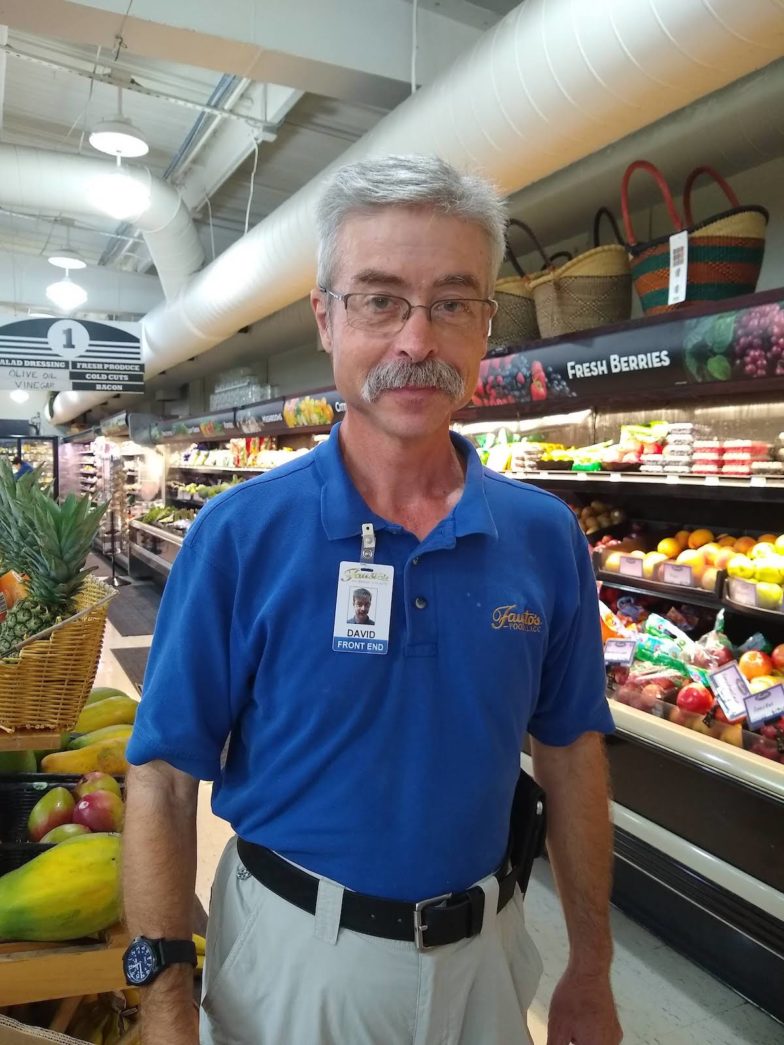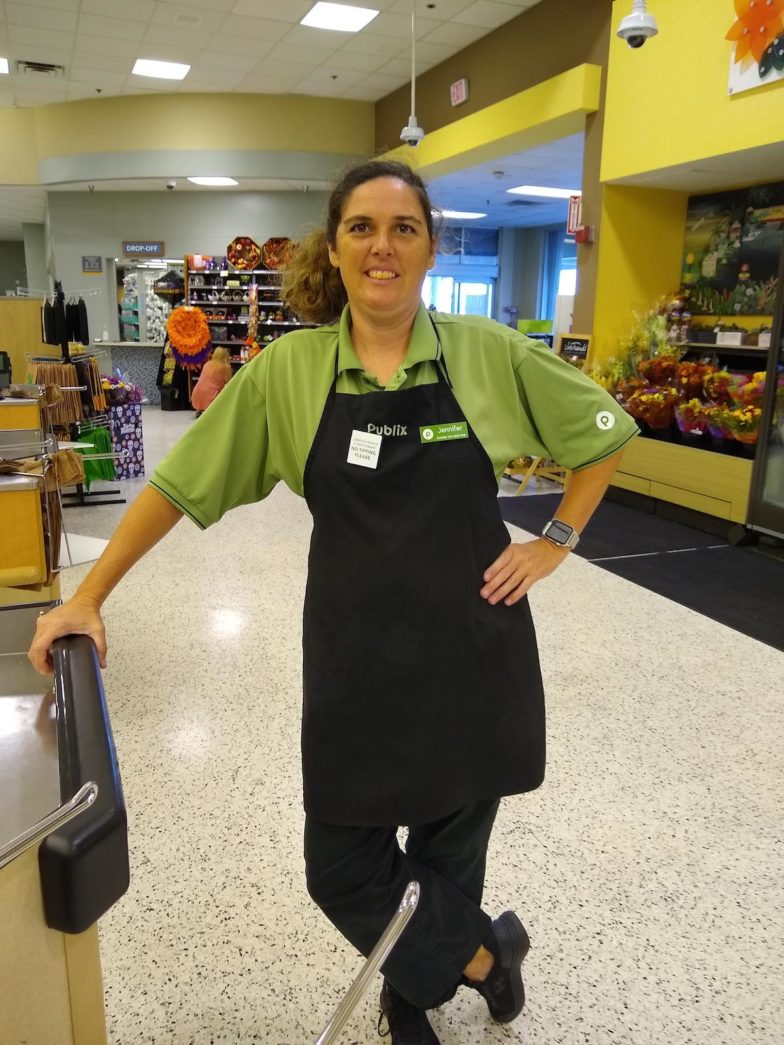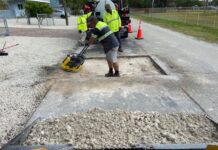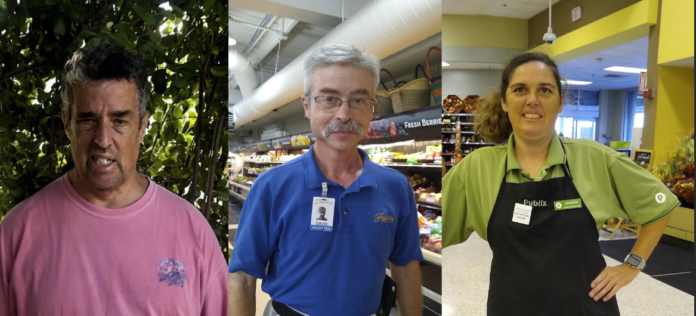It’s Friday afternoon at Fausto’s Food Palace and David is meticulously bagging groceries while chatting away about his latest Special Olympics event — the bowling finals in which he competed last weekend in Miami.

“Did you see the picture?” he asks, pulling the closest newspaper and opening to a shot that shows him and his teammates posing with blue and red ribbons. David is a Special Olympian and Monroe Association of Remarkable Citizens (MARC) client. During the day shift though, he’s also an employee of Fausto’s on Fleming Street. Like many of his friends, David has found satisfaction in employment in the broader community.
This month, National Disability Employment Awareness Month, presents a time to celebrate employees, like David, who are seeking the same work/life balance as everyone else, but with some additional challenges. The campaign, designed by the U.S. Department of Labor’s Office of Disability Employment Policy to raise awareness of workers with disabilities, is a month-long advocacy effort emphasizing the importance of inclusive policies and practices. Such policies ensure that anyone who wants to work can work, and will be guaranteed access to appropriate support services. The campaign also carries a strong public-facing educational effort, aimed at businesses, in an effort to drive more equitable employment of adults with disabilities. The advocacy efforts began in 1945 when Congress declared “National Employ the Physically Handicapped Week.” By the 1960s, language had shifted to become more inclusive, prompting a name change and, in 1988, the week was extended into a full month.
The Keys can be proud of their efforts to create a more inclusive workforce. In Key West, Publix leads the charge, employing numerous adults with disabilities, fostering those relationships and celebrating their achievements through year-round outreach efforts.

Jennifer Averette has held her job as a bagger for the past year and plans to continue indefinitely. She thrives on the atmosphere and appreciates the management, who she says “love working with people with disabilities.” “They look at us as what we are — one of them.”
Across town, Ahmed Sabbagh is starting a new job in Old Town. Sabbagh has a long work history in the community. He worked for five years in the public defender’s office shredding papers, before making a job change to work with Dance Key West, where he swept the floors before rehearsals and classes. His most recent work experience at The Studios of Key West has him spending his mornings in galleries and theaters helping maintain the public spaces through various maintenance tasks that he practices ahead of time with his caregivers at MARC each week. Facilities Manager Lauren McAloon, who helps Sabbagh start his tasks each week, commends him for always being “enthusiastic and dependable.” To hear Sabbagh tell it though, he simply says, “I’m a working man.”
Farther up the Keys, Key Largo Chocolates counts Jack Atkinson among its star chocolate-makers. Atkinson, who’s been with the company since January, is known around town as the “unofficial mayor of Key Largo,” a man who seems to know every face in the community.
Working at the chocolate company is a Willy Wonka dream come true for the outgoing Atkinson. Each day, he greets customers, but also hand-crafts the chocolates that are sold in gift shops throughout the Keys and end up on the plush pillows at Ocean Reef Club. Not surprisingly, Atkinson’s favorite part of the job is the shop environment.
“I like working with the people there,” he says.

Atkinson’s job coach, MARC supported employment coordinator Francine Lemay, explains the importance of employment for her clients.
“You and I get up every day and have the opportunity to work on our passions. Our clients have the same drive and passions as everyone else,” said Lemay, who also noted that the benefits of employing adults with disabilities extend beyond the employed individual. The community also benefits from an increased visibility of a diverse workforce. “The community really loves seeing the adults with disabilities at work in our local businesses, and saying hi.”
In Key West alone, businesses seem to have realized the benefits of employing adults with disabilities. Mama’s Rock and Sand, the Monroe County School District, Florida Keys Aqueduct Authority, Charley Toppino & Sons, Lower Keys Medical Center, Dairy Queen, Key West Chemical, Kmart and The Home Depot all employ adults of varying abilities.
While the employees can count their success as their own, the community has several services to help them navigate the hiring process. The MARC Employment Training Program has seen great success in placing clients in various jobs. Special Olympics also fosters high rates of employment. “It’s more than sports, it’s about giving opportunities to develop self-advocacy and independence. Every student who has been involved in Special Olympics from a young age demonstrates higher functioning in the soft skills needed for employment,” said Ruth Holland, county director for Special Olympics Florida.
The Florida Keys economy certainly benefits from such a pool of skilled employees. Most adult employees with disabilities in the area have held their current jobs for at least a year, and generally all are keen to continue. That means lower turnover of trained employees for employers. And for the community at large, it means a wealth of friendly, familiar faces at our local businesses.






















